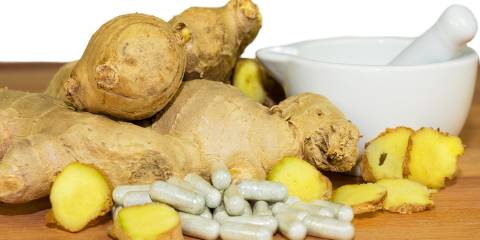Symptoms
-
Amount of Blood
- Soaking through one or more sanitary pads or tampons every hour for several consecutive hours.
- Needing to use double-sanitary protection to control your menstrual flow.
-
Length of Menstruation
- Bleeding for a week or longer.
-
Problems with Blood
- Passing large blood clots.
-
Iron Deficiency
- Symptoms of anemia, such as:
- tiredness
- fatigue
- shortness of breath
- Symptoms of anemia, such as:
Diagnosis
The following are signs you should see your gynecologist:
- Vaginal bleeding so heavy it soaks at least one pad or tampon an hour for more than a few hours.
- Irregular vaginal bleeding.
- Any vaginal bleeding after menopause.
Causes
Many problems can cause heavy bleeding.
In my patients who have been recommended to have a hysterectomy because of fibroids and bleeding, treating these areas often eliminated the need for surgery.
-
Uterine Fibroids
Other problems may be causing the bleeding even if fibroids are present.
-
Deficiencies
Low thyroid (even with normal tests) or low iron.
Just as heavy bleeding can cause low iron, low iron can cause heavy bleeding—creating a nasty spiral.
I give iron until the ferritin blood test is over 60 ng /ml.
The doctor will say it is normal if over 12, but this has been shown to miss over 80% of cases of severe iron deficiency. Get the ferritin up over 60, and ignore the test’s normal range.
-
Dysfunctional Uterine Bleeding
DUB is another common cause of heavy bleeding, especially around menopause.
-
Medications
IUDs or medications (e.g., Ibuprofen) which delay clotting.
Treatment
-
Supplements
-
Iron
Take 50 milligrams of iron a day (containing at least 50 mg of vitamin C to help absorption).
Iron supplements will normally turn the stool black.
Precautions
Do not take iron within 6 hours of thyroid meds, or it will botch the thyroid's absorption.
-
Thyroid Hormone
If symptoms of low thyroid are present, or a test called the "Anti-TPO Antibody" is positive, consider supplementing with a low dose of thyroid hormone, even if the thyroid tests are normal.
-
Vitamin A
Clinical experience suggests that vitamin A 50,000 units a day for 3 months may help (along with the other 2 above — I use all 3 together) in cases of dysfunctional uterine bleeding that occurs around menopause.
I mostly try this as an alternative to hysterectomy for chronic heavy bleeding.
Precautions
This is a high dose of vitamin A.
- It will cause birth defects, so people need to be sure to not get pregnant while on it and for six months after they've stopped taking it.
- People should not take the vitamin A if they have liver disease (it may worsen the hepatitis).
-




